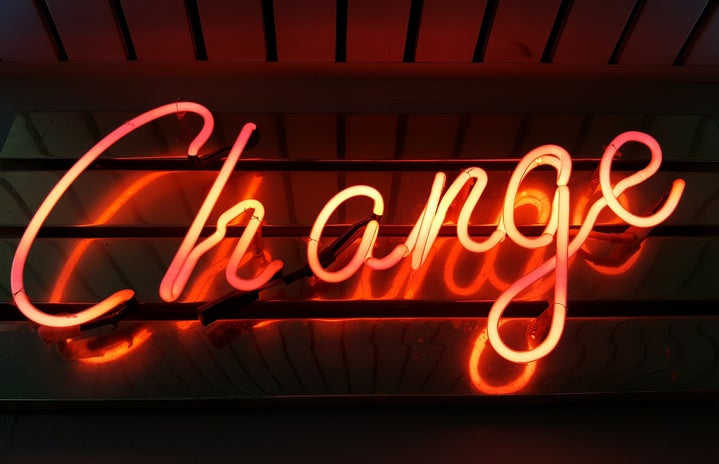As an avid curser and swear word advocate, I’ve noticed a change in the intent of swearing among my peers, specifically those from generation z.
Growing up, I was told by my father lovingly that swearing “doesn’t make you smarter” and while I love and appreciate the care that my parents put into raising me… I’d like to argue that it doesn’t make someone less intelligent either, contrary to what I feel many people from older generations believe.
Raising the argument of “Well, it is who you surround yourself with,” I believe, does have its merits. However, I don’t think that it is necessarily sound, as each of us humans interacts with others throughout our daily lives. It might be possible for someone not to swear because they surround themselves with others who don’t. To be frank, that was my childhood — parents very rarely swearing (if at all), teachers not condoning it, and very rarely friends using profanity. Yet, here I am, though I might be a little less bright-eyed and ignorant of the world, I am still the byproduct of a swearing-limited community and culture.
Since arriving at Kenyon College, I feel that my world has semi-exploded in terms of swearing. I am surrounded by my peers who throw an “f-bomb” around every tenth sentence; even some of my professors use profanity as well, but it stands in stark contrast to the way I viewed swearing in my younger years. Rather than using swearing to seem as though one is cool or “hip” — as my parents might put it — the use of profanity changes to that of honesty. It stresses an emphasis on certain arguments and instead of it being “provocative,” I find it being swept under the rug. I know that there are times that I have heard my peers swear and I don’t even clock it in their conversations unless I am rethinking or recounting the interaction. It has become so normalized that I don’t even bat an eye. I am positive that there are times when I, myself, have sworn and didn’t even realize it.
Though, I must confess, that even when writing this, I feel a sort of shame over the fact that I am admitting to the world that I do, in fact, curse. I’m less worried about people in my age group reading this and thinking that I am somehow a less intelligent person, and more concerned about the idea that those in my life who fit into the categories of Generation X and Baby Boomers are to see this as a flimsy belief — that just because something is normalized in a society doesn’t make it good. However, I do believe that a more relaxed approach to language and a change in how we view speech is necessary to break down intergenerational stigmas and a toxic approach to intelligence and academia.
For there to be such a widespread nonchalant attitude toward the use of profanity from younger generations means that there must be some merit to the use of profanity as a tool to show passion and honesty regarding spoken (and written!) statements.
For younger generations to still be able to do their work and grow as persons, workers, students, etc. while using or even simply tolerating profanity, to me, signifies the fact that it can do no harm; of course, the caveat to this is when profanity is used to bring another person or group of people down. In those cases, swearing is not a sign of honesty, but rather a sign of disrespect. In casual conversation, however, when the conversation is not that aimed to harm another person or being, I find it to be impactful; it shows that a person is passionate about what they are speaking about and are invested in the conversation, something that I think allows us on the other side of the conversation or audience to better understand where the speaker is coming from.
While many modern writers are working to combat the rigid paragraph structure and styles of academic writing, I think that breaking down the limitations of profanity in everyday use and even academic writing could be beneficial for the reader and audience. I realize this is quite an unorthodox and slightly radical position to take, but one I wholeheartedly believe requires further exploration.




